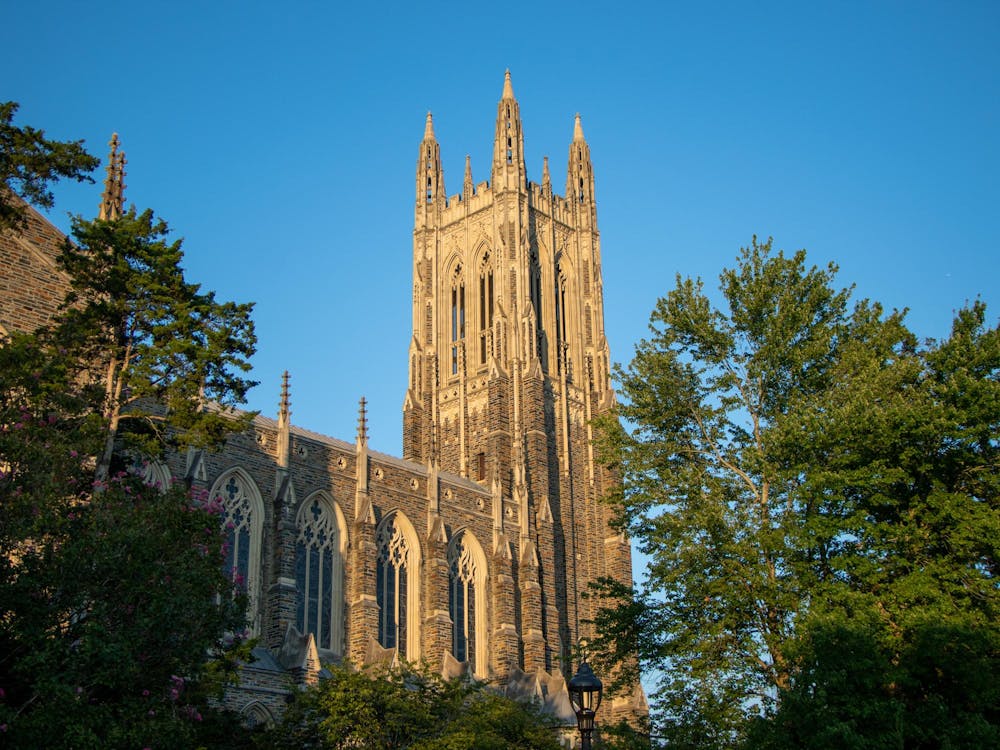Three years and a New York Times Magazine article later, first-generation, low-income alums are still grappling with the FGLI experience at Duke.
The Times published a September article listing Duke as one of the least economically diverse elite universities in the country, which President Vincent Price later wrote portrayed the University in a “rather harsh light.” In the aftermath of the article, students resoundingly agreed with the article’s findings, although they wondered if the University would take meaningful steps to increase its socioeconomic diversity.
The Chronicle published a series of articles about the wealth gap at Duke in 2020, with one feature showcasing the experience of FGLI students at Duke. Several FGLI students and recent graduates felt they lacked guidance and faced immense pressure to succeed.
After returning to the FGLI alums who were interviewed in The Chronicle’s 2020 series, there was a common consensus about the Times’ article — they were not surprised.
“I remember being in first-generation and low-income spaces on campus like Duke LIFE … And there weren't a ton of people in those rooms. So, that itself is not surprising. What's kind of interesting is that it's not necessarily a new problem, right?” said Sloan Talbot, Trinity ‘19.
The alums noted that the conversation surrounding wealth inequality and social mobility remains pertinent both at Duke and in the professional world.
After graduating from Duke, Ibrahim Butt, Trinity ‘21, had to hold off on pursuing a career in politics, working in consulting in order to obtain the financial security he did not already have. At the same time, Talbot and Jamal Burns, Trinity ‘21, pursued graduate degrees and research on the issue of economic disparities in higher education.
Burns refers to the “cognitive links” between success and income, which he feels is especially deeply ingrained in educational spaces.
“I think that that is something that I have people tell me all the time that like, you have three degrees, you are so credentialed, you make X amount of money a year, do you feel successful?” he said. “There's just this belief that like success is automatically tied to the income that you earn.”
Burns agreed that Duke’s lack of economic diversity has been a long-standing issue within the institution. However, he feels that the issue is not a lack of resources, but rather the accessibility of these resources, which he believes need to be “better articulated and better visualized for students.”
One of these resources is Duke LIFE, a part of the Intellectual Community division in the Office of Undergraduate Education, which provides FGLI students with a space on campus and additional support and guidance.
Butt noted that through Duke LIFE, students were able to connect with their professors and administration to address their financial limitations, such as not being able to afford a textbook or not having enough dining swipes to get through the week without using up food points.
Victoria Ely, a junior and FGLI student, agreed that the office positively shaped her experience at Duke by helping her navigate Duke’s social scene. However, Ely also noted that there were “very small things" that make it “so much harder” for FGLI students to navigate campus, such as the replacement of Panda Express, one of the few affordable on-campus dining options.
Butt felt as though he was alone in supporting low-income students during his time at Duke.
“A lot of the time, it felt like it was students mobilizing, and trying to figure it out ourselves without a lot of support from the administration,” he said.
Burns hopes that Duke LIFE continues to make “more equitable strides to how we distribute resources,” such as making the David M. Rubenstein Scholarship Program’s benefits available to other low-income students.
Talbot added that all students should have conversations about socioeconomic diversity and justice, not just FGLI students.
“It can become a collective action effort instead of riding on the backs of those who have already endured the hardship of being subjected to classism,” she said.
For Butt, Duke faces a unique opportunity in light of the Times’ article.
“I think the administration can really learn from their mistakes in the past, not being super supportive in 2018, 2019 to actually being like, ‘How do we learn the lessons of what has been exposed in our university and not hide ourselves to some of the criticism that the University was receiving?’” he said.
Get The Chronicle straight to your inbox
Signup for our weekly newsletter. Cancel at any time.

Michelle Voicu is a Trinity sophomore and an associate news editor for the news department.

